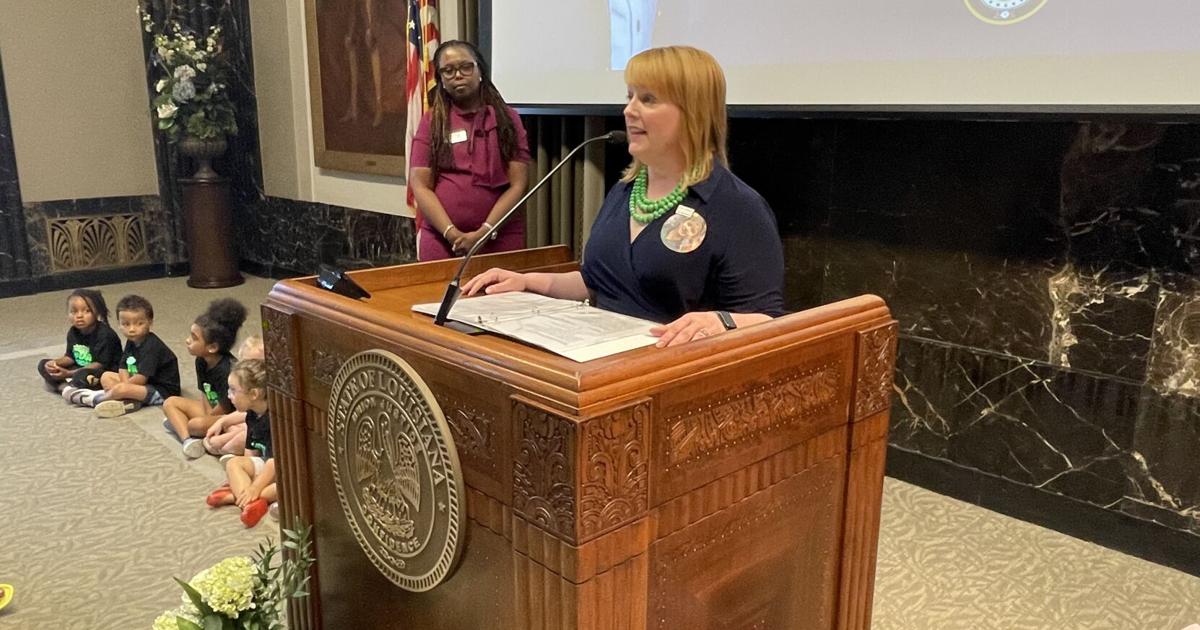Amid outcry, $24M in cuts to Louisiana’s early childhood programs could be restored – NOLA.com

The Louisiana Senate will likely restore $24.3 million in funding for early childhood education after a cut to programming caused an outcry from advocates who said nearly 2,000 infants and toddlers could lose daycare access.
An unexpected $89 million in anticipated spending money for the coming year will likely be used to help close that gap, Senate President Cameron Henry said in an interview last week. He also believes members will spend the extra cash on teacher stipends and on filling another $24 million hole in the state’s general education budget, he said.
“Those are the three main areas,” Henry said. “And then I know the attorney general needs some additional money, the Department of Children and Family Services needs some additional money.”
The House had pulled the $24.3 million from early childhood education. On Tuesday early childcare advocates gathered in the governor’s press room to decry the House’s move and underscore its potential impact on thousands of families.
Dafnee Chatman of Evangeline Parish, a parent volunteer with Save the Children Action Network, said that after her twins were born prematurely and with developmental delays, she struggled to find quality childcare, and had to turn down job offers as a result.
Then Evangeline Parish partnered with Save the Children’s Head Start Program. Chatman added her twins to the waitlist, and they were accepted.
While they were in the program, “I witnessed unbelievable developmental growth in both as they began to navigate the challenges of the world and develop social skills that the doctor said they would not have,” Chatman said.
Shellie Turner, director of Ms. Ellen’s Daycare Center in Lake Charles, said stories like Chatman’s are common.
Her facility currently serves about 72 children, 33 of whom are enrolled through benefits like the Childcare Assistance Program.
Now that her center is faced with losing grant funding, those 33 families are at risk of losing their childcare, Turner said.
“These children will not have the start that they deserve to enter kindergarten and prepare for learning,” she said.
Libbie Sonnier with the Louisiana Policy Institute for Children told lawmakers in April that in addition to the 2,000 children currently enrolled in early education programs, roughly 6,500 are still on the waitlist for care.
On Tuesday, she told The Advocate | The Times-Picayune that studies show children who have access to quality care and education during their first five years are more likely to read at grade level, graduate high school and obtain a four-year degree or receive postgraduate training. Those children also tend to have better health outcomes and are less likely to become involved in criminal activity.
Two-thirds of Louisiana’s children have both parents or a single parent in the workforce, Sonnier said during the press conference, but only a fifth of families in need have access to early care.
Parents “are really concerned they’re unable to afford childcare, as well as basic utilities such as food and clothing,” she said.
Lack of childcare doesn’t only affect children and their families, advocates warn.
The Ready Louisiana Coalition said the cuts mean thousands of parents will be forced to reduce their work hours or quit their jobs entirely.
Those absences and turnovers cost the state’s economy about $1.3 billion yearly, according to a 2022 Policy Institute and University of Louisiana study.
Will Green, president of the Louisiana Association of Business and Industry, called early childhood education a “key plank” of the state’s future.
Last year, lawmakers under Gov. John Bel Edwards added $51.5 million to the state general fund for early childcare seats. Though considered a historic investment, it did not fully offset a loss of seats that had been covered by federal COVID-19 relief money.
Sen. Beth Mizell, R-Franklinton, said the Senate “desperately” needs to restore the $24.3 million to the budget.
“It’s an acknowledgement that we have a whole segment of people who could be going to school and going to work if they had a place to have child care,” she said, adding that parents must be in school with the intention of working or hold a job to qualify for the program.


